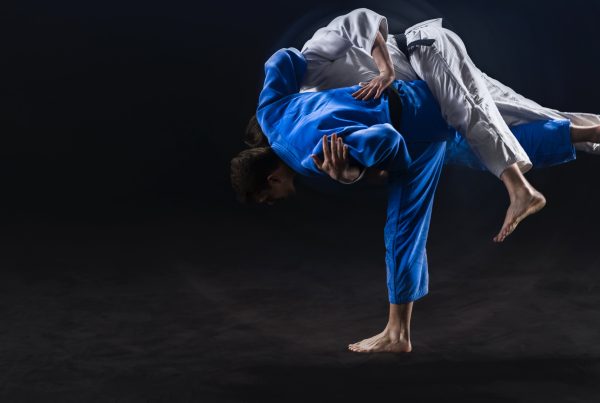I often get asked about tips and tricks that people might leverage to help them stay focused and on task.
Many people are good at staying focused and I certainly can’t lay any special claim to this. I’ve never conducted scientific research on the topic and what follows is the fruit of my own reflections, based on a combination of personal experience and exposure over time to a number of systems of traditional wisdom. Please accept those thoughts for what they are and nothing more.
Let me start then with a question that I was recently asked during one of the “Let’s Chat” sessions that I host on a regular basis with small groups of employees at work. The question, which I’ve been asked countless times before, was this: “Bernard, how have you managed to keep up the practice of judo for all those years despite all your other commitments?”
It’s not a bad question. People sign up for the gym every January only to ask for a refund three weeks later. I usually get to the dojo three times per week and have been keeping up this discipline for the better part of forty years. Maintaining any purely discretionary activity in a sustained way for four decades is as good an example of “staying on task” as I can think of so as I said, not a bad question.
My answer to the question was that I’ve been doing this for so long that at this point, it has simply become a habit. Habits are a very ancient idea so allow me at this time to quote Edith Hall, Professor in the Classics Department at King’s College London, in her most recent book, “Aristotle’s Way”:
“The “virtues,” or “routes to happiness,” are not so much qualities of character as habits that can be learned through practice. After repeated performance, they become so ingrained, like our unconscious reflexes when we drive a car, that they may indeed seem (to other people, at least) to be a permanent quality (hexis) of your character.” (Edith Hall, “Aristotle’s Way: How Ancient Wisdom Can Change Your Life”, p. 99)
Habits are powerful stuff, especially those that are related to desirable traits of character – what the Ancients used to refer to as “virtues”. In addition, one of the great benefits of habits like the ones I’m discussing here is that they allow for the development of adjacencies. They hang together, if you will, like a kind of latticework: Develop one and you have an anchor point for the next one.
That’s nice and fine you will say, but that’s not really an answer, is it? Wouldn’t there have been a time – in my youth – when no habit had yet formed and when therefore some other impetus must have been required?
The first impetus, truth be told, was no other than my mother declaring that she had paid for a gi (or kimono) and that I would keep going to the judo classes whether I liked it or not – end of discussion. I was fortunate however – blessed, really – to quickly discover in my peers a community of friendship, in my teacher a powerful role model, and in judo itself a pursuit that aligned with my natural inclinations and offered a unique opportunity for personal fulfillment.
To put it differently, I don’t believe that I would have persisted in the practice of judo if, in the early days, I hadn’t found in the dojo the kind of supportive environment and other conditions that allowed the nascent habit to take root in me.
From that point on, I was taken step by step down a path (or Dō) specifically designed to inculcate and reinforce, through the force of practice, a number of “routes to happiness” – including Focus – that have helped me greatly at work and in life more broadly. A path, it should be said, that is meant to be without end, but which starts offering benefits from the very first step – the commitment to the journey ahead. (All of this could be said of course of painting, music or any other number of Practices.)
Allow me to put a finer point on this as it is quite important. “Practices” in the Aristotelian sense aim to develop virtues/habits through some kind of appropriate activity – such as learning to play an instrument, for instance. Under such a system, there’s no need for the teacher to employ words to impart the virtues being taught since they emerge naturally as a result of the student striving for excellence in that Practice over a prolonged period of time.
Courage, respect, integrity, attention to details, perseverance and others are examples of Virtues (or habits) that naturally emerge in this way through the chosen Practice. In the dojo, I therefore aim to develop in my students habits such as staying focused – but without ever having to expound on the importance of those habits. This is a different paradigm from traditional training and development approaches that most of us are familiar with (i.e. being lectured to in a classroom) and one that I previously discussed in more detail here and here.
Getting back to the question at hand, I’d love to be able to say that I have easy tips and tricks to offer to people who would like to increase their focus in whatever they do but that would be somewhat disingenous of me. There are indeed effective ways to develop qualities of this nature and those ways are open to all irrespective of age or background, but quick and easy they are not.
There are no shortcuts to the good life (eudaimonia). It is, quite to the contrary and by its very nature, a lifelong journey. Elevating desirable traits to the level of a habits requires time and commitment.



